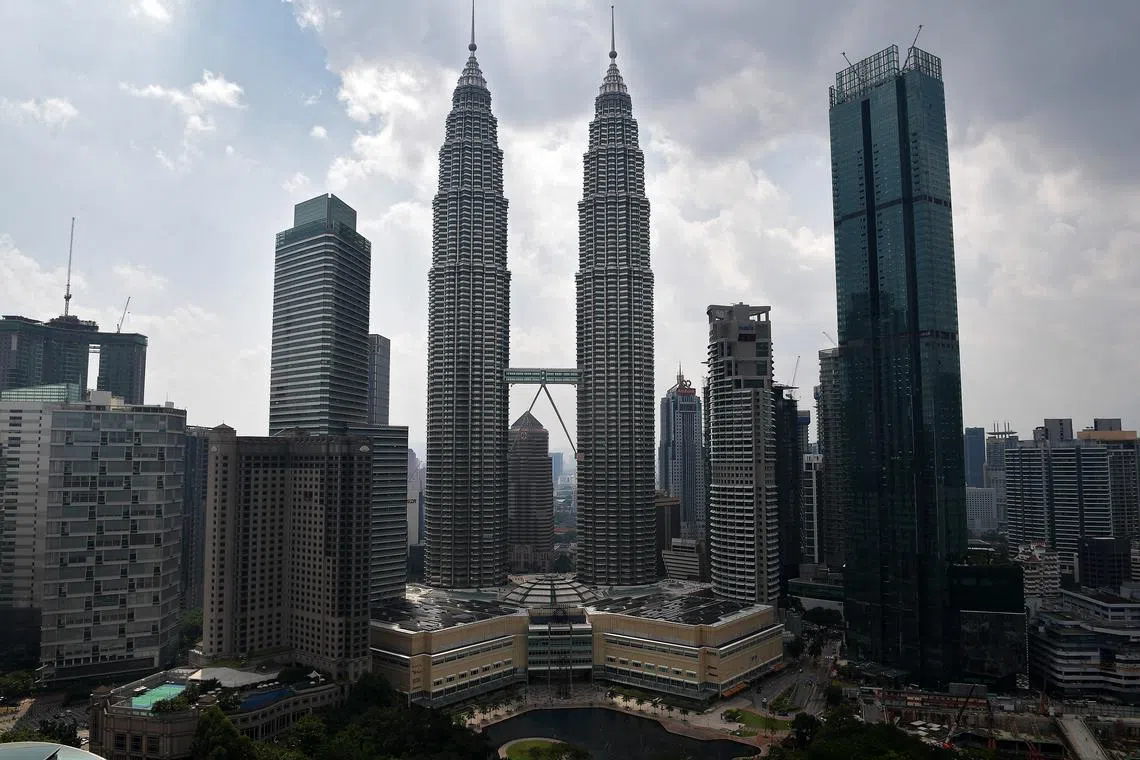Electricity tariff hike for MNCs in Malaysia, domestic users spared
Sign up now: Get insights on the biggest stories in Malaysia

There is an urgency to increase the electricity tariffs because the country’s finances would be negatively impacted by at least RM30 billion (S$9.2 billion) in 2023, says Prime Minister Anwar Ibrahim.
PHOTO: BT FILE
Follow topic:
KUALA LUMPUR – Malaysia will increase electricity tariffs for export-oriented multinational corporations, while domestic small and medium-sized enterprises (SMEs) and households as well as businesses involved in agricultural and food production will not be subjected to any hikes in 2023.
Prime Minister Anwar Ibrahim said on Wednesday that the earlier proposal to increase the electricity tariff for households will be scrapped, as this would burden Malaysians amid a sharp rise in world fuel prices.
There is an urgency to increase the electricity tariffs because the country’s finances would be negatively impacted by at least RM30 billion (S$9.2 billion) in 2023, said Datuk Seri Anwar.
“So, only multinational corporations that export products will be charged, but the increase in tariffs for these businesses will be very gradual, reasonable so that it will not disrupt their operations,” he said at a press conference on Wednesday.
Malaysia is grappling with a wider fiscal deficit, with some economists anticipating the country’s upcoming Budget 2023 to reflect a fiscal deficit of 5.8 per cent of gross domestic product, unchanged from 2022, compared with the initial official forecast of 5.5 per cent.
The government subsidies are expected to touch RM80 billion this year, the highest in the nation’s history, about half of which will likely be fuel subsidies.
Prior to the announcement of tariff hikes, national electricity utility company Tenaga Nasional was seeking RM16.4 billion from the government for the first six months of 2023 to cover additional power generation costs, according to Hong Leong Investment Bank Research.
Malaysian Institute of Economic Research senior research fellow Shankaran Nambiar welcomed the government’s move to the targeted approach of electricity subsidy for only households and SMEs, as blanket subsidies are costly and fiscally unsustainable.
“Targeted electricity subsidy would cushion the fiscal deficit of the country. We won’t be paying for those who don’t need support. This will give some room to direct government expenditure to disadvantaged groups or to boost total demand in the economy.
“It doesn’t make sense for the government to subsidise large businesses. We need to adopt a more prudent fiscal position,” said Dr Nambiar.
Although the targeted move is lauded by economists, Socio-Economic Research Centre executive director Lee Heng Guie cautioned that export-oriented MNCs that are selling their products in the domestic market could pass on the higher costs to consumers due to the rise in tariffs.
With commodity prices declining in view of the risk of global recession next year, he added that it would give the government “breathing space” as subsidies may not be as bloated in 2023 compared with 2022.
“This is why, it is a fiscal sustainable move by the Prime Minister to implement a mechanism to gradually rationalise subsidies from blanket to targeted ones, including electricity subsidies now,” said Mr Lee.
Centre for Market Education chief executive Carmelo Ferlito said new tariff hikes for MNCs could eventually deter them from continuing to invest in Malaysia.
“This could potentially impact foreign direct investments, or at least we should wonder if it would before rushing into this decision and engage in a sound trade-off analysis,” he said.
Opening up the country’s energy market would be a better solution, he said. “If we really want to get rid of subsidies and get cheaper bills for consumers, the only long-term strategy is competition and that comes through liberalisation of the electricity market.”


